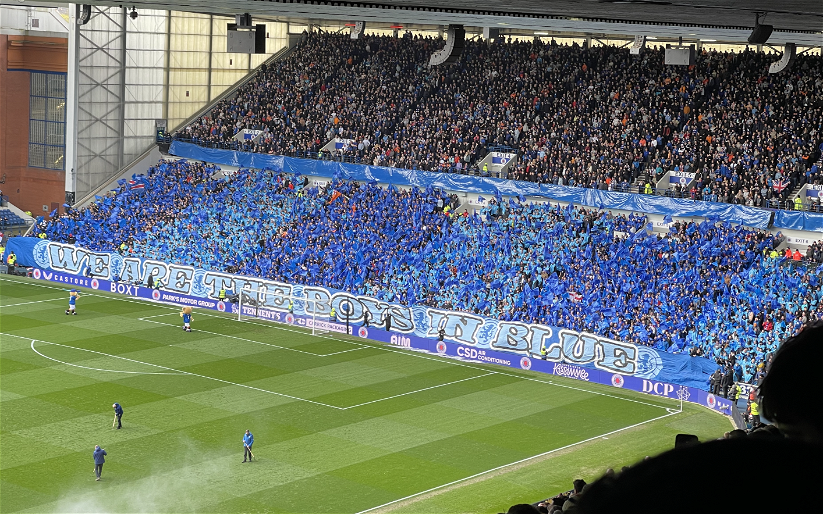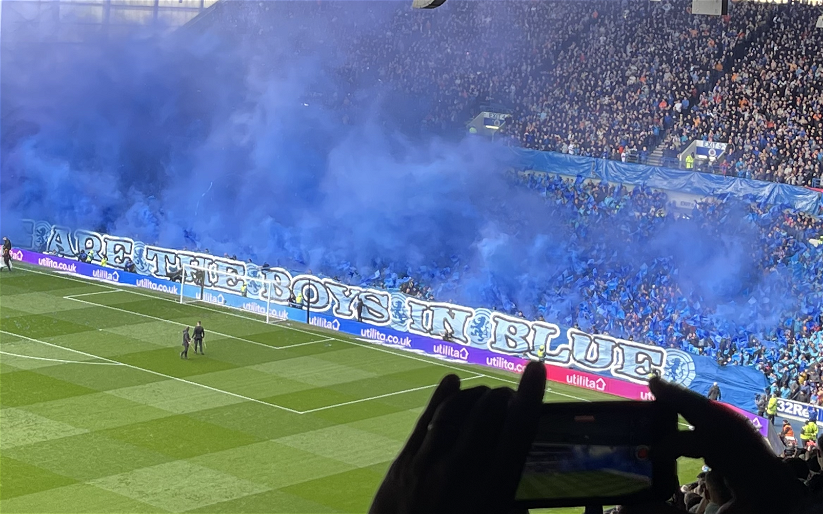EDITORIAL NOTE: THIS ARTICLE REPLACES AN EARLIER PLANNED VERSION THAT READ AS FOLLOWS:
TNUC ESUOCS UOY FFO KCUF
And I thought John Bishop on Doctor Who, with a Brookside veteran as his mammy, was the Scouse nadir of the week.
There are a few aspects to the manager leaving that have focused the mind over the past day or two so let’s deal with them separately before considering quite why the timing is so important, and not just for this season.
It may well be the case that family pressures have become more of a problem as time has passed. But there is no credible situation where Steven Gerrard (or indeed almost any other manager) decides to leave in mid-season to “be (an hour) closer to his family” that isn’t about scandal or severe ill health. Neither of those applies here and although we have no right to meddle in or try to act the amateur psychologist when it comes to the personal life of others neither should we entertain this nonsense – Gerrard is a grown man who signed a contract, understood what it entailed, and has been handsomely rewarded for his part.
To leave at this point in such a season – with everything that is up for grabs and with the position facing the club – would be some way south of disappointing on the way to (if not quite arriving at) despicable even if Gerrard correctly believes that he can do very little more under what he would view as the constraints of the position. He deserves the criticism that comes his way. It’s not impossible to recognise and understand why someone has done something without acknowledging that it’s still a poor show, la.
Nobody can deny that the chance to coach at a team in the EPL Television league is a big step up from the poison pond that is the SPFL yet the challenge facing Gerrard in the short-term is not to be dismissed lightly – avoiding the drop in year one and then challenging for a European place isn’t going to be easy. The budgets and the salary will be much greater but the bigger question for a man like Gerrard is whether it’s going to be satisfying slogging it out.
So much has been made about the idea of Gerrard’s entire managerial career being simply a series of steps towards his preordained position as manager of Liverpool and although one can pick that to pieces we shouldn’t dismiss either its validity or the seriousness with which the man himself has set to the task: Gerrard is a driven man, was a wonderfully competitive leader of men as a player, and people whose entire sporting lives have been spent at an elite level are not prone to setting low standards or giving up what they feel is entirely within their capabilities. Success at Villa will go a long way toward that destiny. Failure will put it entirely out of reach. The stakes here are high.
Gerrard, of course, wouldn’t be the first Rangers manager to walk out prematurely or while the key competitions were still in the balance but although it’s tempting to draw comparisons with the departure in 1991 of Graeme Souness the circumstances are barely analogous – Souness left for emotional reasons after a spell in Scotland that was often as personally controversial as it was successful, while Gerrard departs for a stepping-stone EPL TV show in the hope of evading relegation and thereafter boosting his credentials and CV while being backed handsomely via the allocated share of those TV subscriptions.
You can no more reasonably blame Gerrard for wanting to play that risk/reward game than you could Souness but leaving toward the end of a season is not the same as leaving in the second week of November. People are perfectly entitled to be mad, especially if many if not all of the backroom staff exit stage left at the same time. Those falling over themselves to prioritise thanking him for his efforts and subtly or otherwise trying to make a fool of those who are happy to let that wait for a while may be worth checking up on in January when the sales are on and there’s more than a good possibility of our squad being cherry-picked…
The crucial aspect regarding a key departure is not, however, the manner of the respective exit and how sad or otherwise the punters feel about it but, rather, how quickly those losses can be absorbed and the continuing success of the football club secured.
In the case of Graeme Souness it was quickly, if not forgotten or quite forgiven, at least put to the side –and the reason for that, and ultimately the making of Walter Smith, was that Rangers won that championship. The potential sliding doors moment never really had a long-term effect, although it is worth noting that Walter was not necessarily a unanimously popular or inevitable choice to succeed Souness at that point. That successful defence of the title is why the magnificent one is so easily welcomed back and much discussion of his time at Ibrox barely pauses to consider quite what a shock it was at the time. It’s a results business, after all.
But what about Gerrard?
There’s no doubt that 55 was vital. There can be no dispute that it was satisfying. Some of the football we’ve played over the past few years has been magnificent. And not a single sober observer of Scottish football is going to deny that Steven Gerrard and his team, on and off the field, deserve enormous credit for that achievement. The Rangers of today is a much brighter prospect than when he took over. But this season’s title is more important.
And it’s more important for a simple enough reason; a reason our latest accounts make clear, a reason that has materially hampered Gerrard’s ambitions for the squad, and one that has been discussed at length both here and elsewhere almost since the fifty-fifth title was wrapped up and delivered as a beautiful present: the short to medium term success and indeed the very competitive nature of the club relies upon winning the 2021/22 SPFL title and gaining automatic access to the CL. We went all in this close season – whether by default or not it turned out we couldn’t, wouldn’t, didn’t sell any of our main assets – and this is what we do now.
People often talk about worst-case scenarios in order to frighten others into action, but more regularly we point towards a really very bad thing but bottle it along the way and decide instead that what we mean when we say we’re skint or in poor health is really just a little bit of a problem that will in all likelihood work out okay even if we don’t really take those steps to remedy the issue at hand.
So here’s the summer 2022 worst-case scenario.
McLaughlin is our goalkeeper, with McCrorie as back-up, as McGregor retires. In an effort to ensure the club can survive the medium term we finally have to make money to fill the funding gap and all manner of departures become inevitable: and all from a position of weakness re negotiating fees, contract strength. Patterson is sold. Goldson leaves (if he hasn’t already). Barisic has gone. Kamara, Kent, Aribo, and Morelos are all long since sold. Davis looks his age. Hagi leaves at Christmas.
We don’t qualify for either the CL (knocked out by first decent side) or the EL (knocked out by a team from Moldova or similar). Our main domestic opponents have qualified directly for the CL and increase their competitive advantage over us from significant to era-defining. The next few years are grim.
That’s the true worst-case scenario. There’s also, of course, a best-case scenario.
The best-case scenario is that we get a little lucky with our next appointment and we manage to win the league championship, fending off the challenge from our Glasgow chums, and preventing the inevitable beatification of the slightly-unsettling sweaty PE teacher. This is by no means improbable. The board and the DOF have to pick a candidate who has a recent history of playing the same way, and can do as much as possible to make the transition as seamless as is realistic. Players aren’t robots but neither are they so instantly unsettled that they forgot how to play or are slow to try to impress the new man. A good number of the departures indicated above will happen, one way or the other, but in the best case scenario we will have the £ to fund the replacements that our sporting director has surely been scouting and planning for.
The loss of Gerrard may have a significant long term effect, or may be something that the club and the fans can get over reasonably quickly, but for the latter to be true we need only have to wait until the end of this most significant of seasons. All that said, it is not inevitable that by retaining Gerrard and co. we would have automatically won the league title again and there are those among us who may well consider that part of the reason this side have failed to make much of an impression so far this season – at least in terms of establishing a significant gap over our competition – has at least a big part to do with the lessening impact that every managerial team and their ways encounter along the way.
We should thank Steven and his team for their efforts while resolving to keep those happy days close to our hearts. And at the same time hope that such a pleasant task as reliving and reassessing those years, and determining the legacy of his period as Rangers manager, is made all the easier not only as champions but from a position of strength the club has not enjoyed for longer than we’d care to concede: a position that he has helped to achieve.
The other alternative is too painful to envisage and would ultimately do a great deal to cement his reputation as a villain: he becomes either the final king in a major dynasty or merely the beginning of a new royal blue House of Ibrox. Time is a great healer but in the scenario where this season goes wrong there is little chance of distance removed being a factor: we must focus now on retaining this title and avoiding the horrors that otherwise await.
Gerrard has looked out for himself and so must the fans and the people responsible for the club put Rangers first: and turn it from a slogan into a commitment.
Share this article



